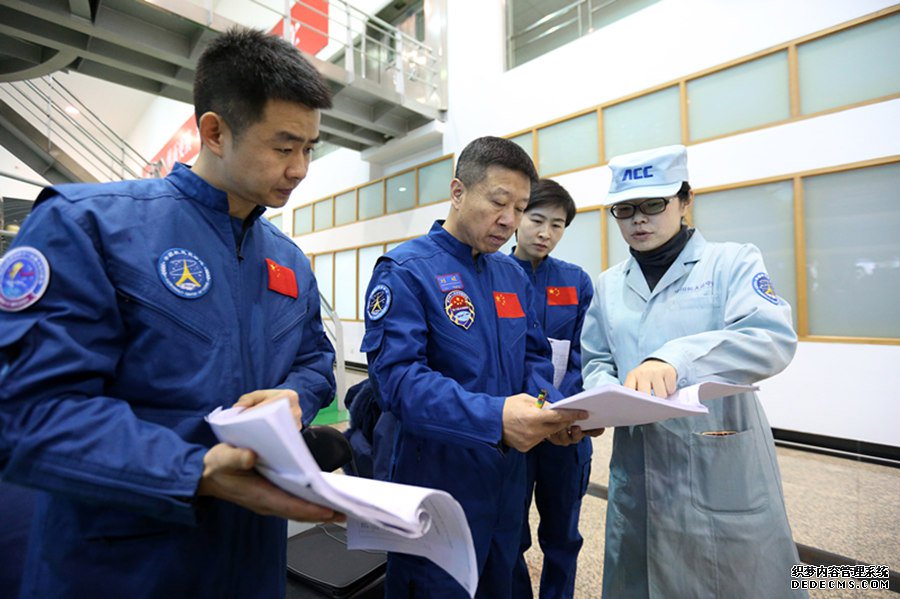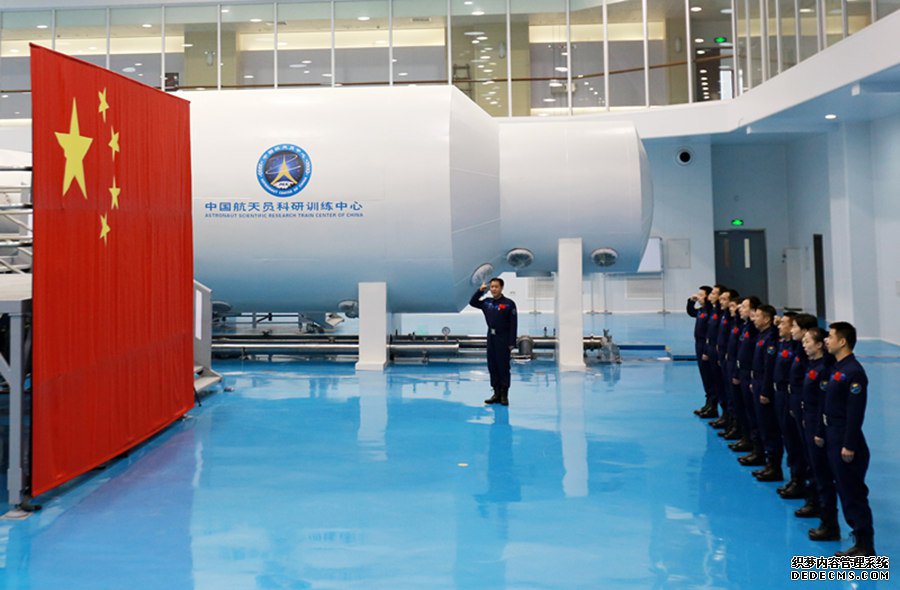- 烈焰私服
China's astronauts prepare for a new era of exploration(2)
-
In 2003, the country conducted just seven space missions, while Russia undertook 21 and the United States made 23; by comparison, this year, China will conduct at least 40 unmanned missions in an ambitious schedule that is likely to outnumber those of both the US and Russia.
More than 1,500 pilots applied, and after several rounds of stringent tests the number was whittled down to 14. In January 1998, they became the founding members of the PLA Astronaut Group, and in 2010, they were joined by seven new astronauts who were also experienced Air Force pilots.
Those accomplishments have become a source of pride and growing confidence in the nation, in addition to sparking patriotic sentiments in Chinese communities across the world.
A source of pride
Now a major general and bearing the honorary title of "Space Hero", Yang is deputy director of the China Manned Space Agency.
Three years later, the Central Military Commission decided that the astronauts should be chosen from veteran pilots in the PLA Air Force who had at least 600 flight hours in fighter jets or attack aircraft.
President Xi meets Shenzhou-11 astronautsNie Haisheng, Fei's partner on the Shenzhou VI mission, explained that China's astronauts now have a wider range of training methods designed to help them become familiar with the advanced equipment that will be used on the space station.
China to select third group of astronauts this year
Chen Dong, Liu Wang and Liu Yang talk with a team member during flight training at the center. [Photo/China Daily]
Unforgettable memories
Chinese, European astronauts complete sea survival training"We astronauts must continue to improve our abilities and learn how to operate and maintain the equipment that will be used on the space station," he told reporters during an open house held at the Astronaut Center of China in northwestern Beijing to mark the 20th anniversary of the founding of the People's Liberation Army Astronaut Group.
During centrifuge training, the astronauts endure gravitational acceleration as much as eight times their own weight so they will be able to resist the g-forces during liftoff that severely restrict the ability to breathe.
Jing was both pleased and modest when he received the medal. "Of course, the honor and glory belong not only to us, but also to tens of thousands of scientists, engineers and workers from more than 3,000 institutes, universities and enterprises who have played a role in the nation's manned space programs and contributed to sending us into space," he said.
According to the plan of action, a Long March 5B heavy-lift rocket, which is currently under development, will put the station's core module into orbit in 2020. That will be followed by at least four manned missions to carry astronauts into space to assemble the station. In common with previous space missions, the government has not released any figures related to the cost of the project.
According to statistics provided by the manned space agency, the ratings for TV and radio programs about astronauts broadcast during manned missions are always extremely high, while books about China's manned space expeditions remain at the top of the best-seller lists for many years.
On October 15, 2003, China carried out its first manned space mission, sending Yang Liwei on a 21-hour series of Earth orbits in Shenzhou V.

They are the only people in a population of 1.3 billion who are active, qualified astronauts. At present, they are training for one of the most spectacular endeavors of the coming decade: building and operating China's first space station. Construction will begin in 2020, and the facility, which will be designed to last at least 10 years, will come into service two years later. Each group of astronauts will occupy it for three to six months at a time.
During the Shenzhou VII mission, Zhai Zhigang and Liu Boming spent about 20 hours assembling their extravehicular suits but then discovered they were unable to open the spaceship's exit hatch. Eventually, they decided to use a tool to force the hatch open despite the obvious safety risk. At the same time, the spacecraft's computers sounded a warning that there was a fire in the orbital cabin.
In 1992, the Central Committee of the Communist Party of China approved a road map for the country's manned space program drawn up by a number of eminent scientists.
However, for 16 people in an inconspicuous compound on the northwestern outskirts of the city the adjective is almost always used literally.
Looking back at these and other experiences, the astronauts said their struggles, sacrifices and persistence were all worthwhile.
"They said my colleagues and I had inspired them to explore the universe and they would try their best to become astronauts," she said. "I would never have imagined that my teaching could spark so many dreams and aspirations"
"During training to simulate weightlessness, astronauts wear suits that weigh 160 kilograms and stay underwater for about four hours. They lose an average 2 kg during each training session and after a session they are so exhausted that they are unable to hold chopsticks," he added.
Moreover, since 2003, China's six manned spaceflights have totaled 68 days and orbited Earth 1,089 times, while the nation's astronauts have travelled more than 46 million km in space and conducted more than 100 experiments.
In July, President Xi Jinping, who is also chairman of the Central Military Commission, conferred a first-class military decoration on the PLA Astronaut Group, and also awarded an August 1 Medal, the highest honor given to individual members of the Chinese military, to Jing Haipeng, who has taken part in three missions, including the Shenzhou XI/Tiangong II expedition in late 2016, which lasted 33 days.
- 共3页:
- 上一页
- 1
- 2
- 3
- 下一页




